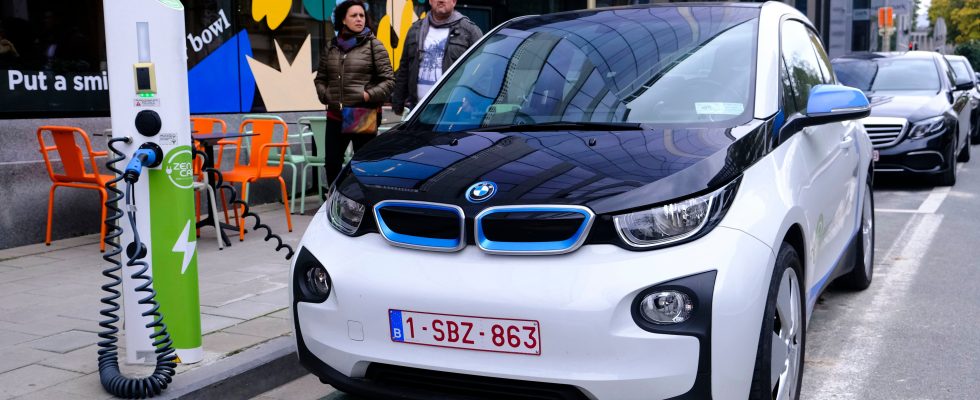Companies in the Old Continent are showing virtuousness in the electrification of their automobile fleets. And, unsurprisingly, the countries of Northern Europe are leading the way. Swedish and Finnish companies are in the lead with an adoption rate of 37% and 30% respectively. They are closely followed by the Dutch (27%), the Luxembourgish (25%) and the Belgians (23%).
The Flat Country even has a record: registrations of electric cars there were twice as high as those of diesels in 2023 – knowing that 90% belonged to companies. Two measures explain this enthusiasm: the elimination of subsidies for plug-in hybrids and a legislative tightening which requires companies to have 100% battery-powered vehicle fleets from 2026. However, sticks do not come without carrots. Professionals already benefit from a 100% tax deduction when purchasing. This deductibility also applies to maintenance and insurance, whether the vehicle is acquired outright or rented with an option to purchase. Finally, as a final boost, companies can deduct from their taxes 75% of the electricity bill used for recharging.
Two other decisions should further accelerate the transition of fleets. From 2030, diesels will be banned from the city of Brussels and gasolines will in turn be banned from 2035. For its part, the Flemish government will tolerate after 2029 in the region that it only administers sales of electric models, including included for vans.
In Germany, the government has been even more coercive. From December 2023, a year ahead of schedule, it abruptly ended the ecological bonus of 4,500 euros which had been paid until then. A measure which affects more than a hundred models, half of them SUVs. Customers who had placed an order counting on the bonus find themselves in a carafe. Already, in September, the bonus had been slashed for commercial cars. In fact, experts from CAM, the German automotive scientific institute, fear a decline in sales of between 50,000 to 100,000 units for this year.
Growth of… 102% in Portugal!
Long lagging behind, the Iberian Peninsula is catching up. In Spain, registrations of electric cars jumped by 69.4% and those of hybrids by 30% in 2023 thanks to the introduction of bonuses amounting to 7,000 euros for the former and 5,000 euros for the latter, granted to vehicles whose price does not exceed 45,000 euros. In its Portuguese neighbor, zero-emission vehicles recorded growth of… 102% the same year and now constitute 15% of fleets. Mixed rechargeable engines have also progressed. They represented 31.8% of sales and have a market share of 13.6%, compared to 10.2% in 2022.
For its part, Italy has finally decided to accelerate the reconversion of its automobile fleet, one of the most dilapidated in the Old Continent. In February, the government said it wanted to devote 950 million euros to support the electrification of the fleet by 2030. This sum is part of a broader budget of 8 billion euros in which the development of charging infrastructure is included. The aid ranges from 4,000 to 13,700 euros for vehicles whose price does not exceed 35,000 euros and initially concerns LPG or CNG gas versions. Bonuses are also granted to plug-in hybrids worth less than 45,000 euros.
Enough to think that despite a fairly disrupted economic environment, electromobility continues to be deployed in Europe.
An article from the special “Automobile” report of L’Express, published in the weekly on April 18.
.
